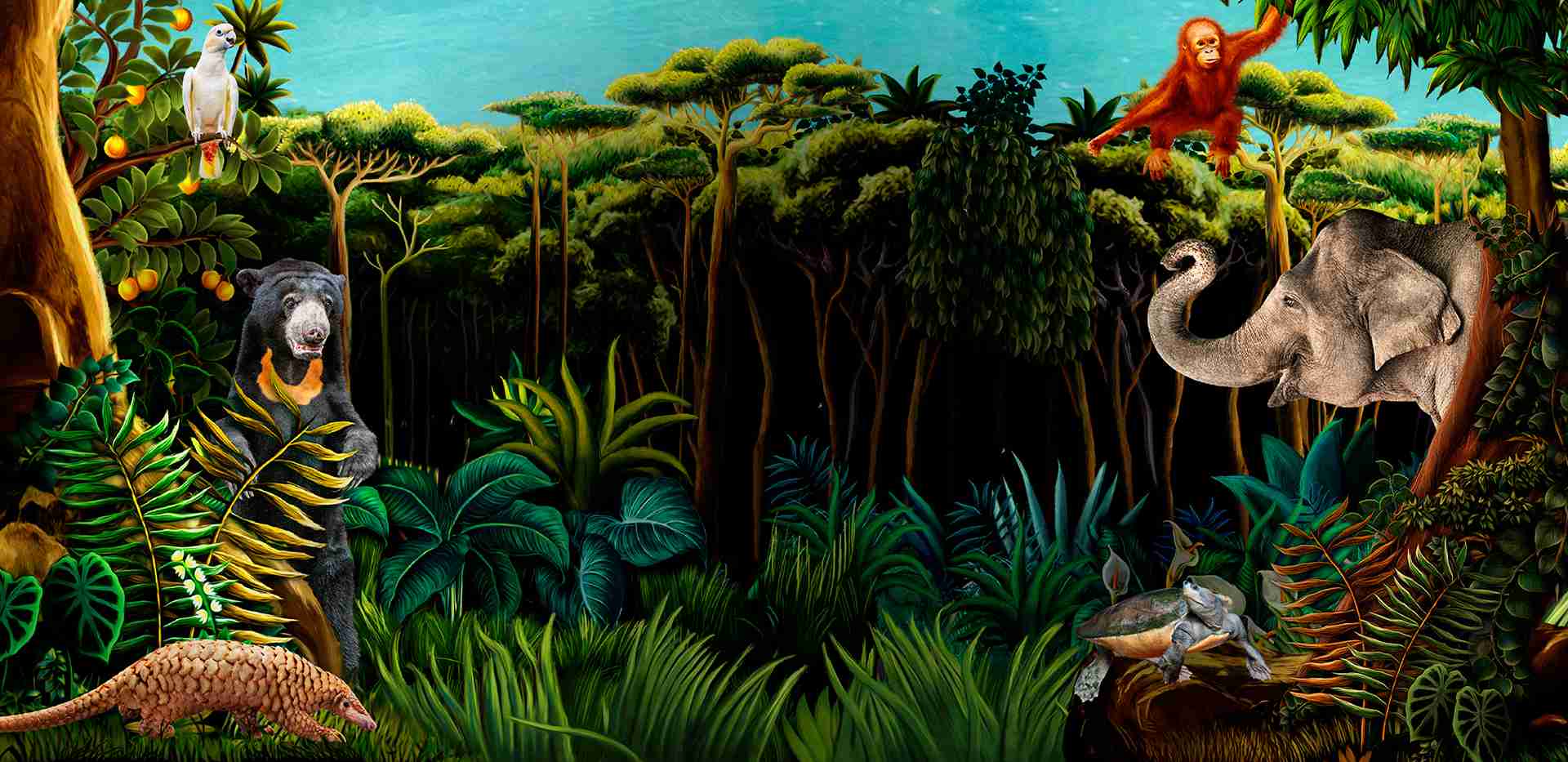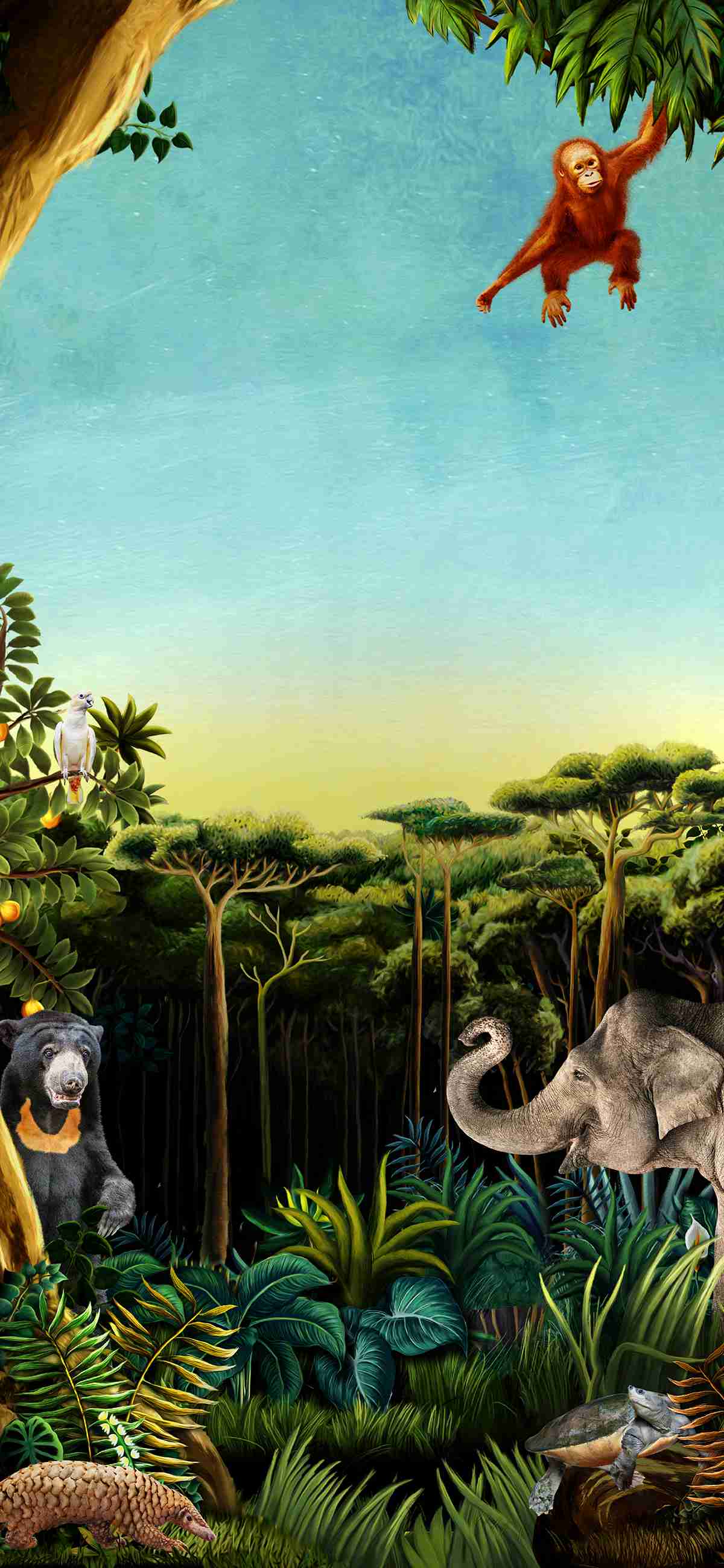Over Half A Million Dollars in Research Grants Awarded by Mandai Park Development for Environmental-Related Studies
The Fund is disbursed by developer, Mandai Park Development (MPD)[1] which is overseeing the masterplan of the Mandai precinct where an integrated nature and wildlife district is currently being developed. The district will include new wildlife parks and public spaces in addition to the existing operations of the Singapore Zoo, Night Safari and River Safari.
In the call for proposal last year, a two-step scoping process was initiated. A closed-door workshop was first held to discuss research themes ranging from habitat connectivity to thermal comfort. Individuals from different fields were invited to identify and shortlist research studies that may fulfil their own research interests, as well as address knowledge gaps that are relevant to the Mandai project. Proposal submissions were then crafted based on the discussions at the workshop. Four research proposals were eventually selected. These include studies on thermal comfort, improving habitat connectivity for the Sunda Colugo, understanding insect diversity in Mandai and examining closed loop waste management.
This partnership with the research and academic community will also enable MPD to build on existing baseline data about the biodiversity in the surrounding Mandai precinct, which in-house environmentalists and consultant ecologists have been steadily accumulating.
Dr Lee Hui Mien, Vice President for Sustainable Solutions, Mandai Park Development said, “Having been allocated this land for development, our aim is to strive for a better outcome than before. The additional research will allow us to proactively identify knowledge gaps and delve deeper into specific issues which may be unique to the Mandai district, including matters beyond biodiversity such as thermal comfort. New data collected could also add to the scientific advancement of our local biodiversity knowledge. It will take at least 12 months to see tangible results, but we are excited to see the formulation of innovative solutions. These new opportunities will help create more conducive habitats for our local flora and fauna, and also enhance the environment for our guests as we present them with windows into the wild to connect with and appreciate nature.”
The selection process placed priority on research proposals that contained strong relevance and applicability to the Mandai project. Other evaluation criteria included the quality of scientific content, feasibility of research methodology and potential to build local capacity. The four projects also received endorsements from the Environmental Advisory Panel (EAP)[2].
“Research projects have great potential to make real contributions to knowledge and practice. A deliberate decision for a two-step scoping process was thus taken as we believe it will increase the likelihood of successful research outcomes that can inform the work at Mandai, and also potentially, future developments. Furthermore, the funding will fuel responses to plausible concerns that can be carried into the operational phase of the new nature and wildlife district. The participation of students in these research projects also builds local capability as Singapore grows its next generation of ecologists.” said Dr Shawn Lum, a member of the EAP, who led the evaluation of the research projects.
The four projects that were awarded under the Mandai Research Fund are:
| Name of research project | Description |
Dr Hwang Wei Song & Dr Ang Yuchen, Lee Kong Chian Natural History Museum, National University of Singapore |
The 2-year project aims to provide information on the insect diversity present in the buffer zones, setbacks and retained forests of the Mandai project through an extensive survey programme that aims to include as many habitats as possible. Such data are useful to foresee potential issues and explore solutions related to undesirable carriers of parasites and diseases, invasive species and species reintroduction efforts. |
Dr Norman Lim T-Lon, National Institute of Education, Nanyang Technological University Dr Gregory T Byrnes, Biology Department, Siena College |
The 2-year project aims to investigate the influence of the developments in the Mandai district on the movement of the Sunda colugo, which is commonly found in the area of Mandai. |
Dr Winston Chow, School of Social Sciences, Singapore Management University Dr Sin Harng Luh, Department of Geography, National University of Singapore |
This 18-month project aims to find out how thermal environment impacts the effectiveness of environmental/educational message retention by guests visiting current parks in the Mandai district – Singapore Zoo, Night Safari, River Safari. |
Dr Lily Ganda, Mr Jeremy Wu, Dr Goh Chee Keong, Mr Jeremy Kong, Republic Polytechnic |
The 1-year project aims to use empirical data to find out whether it is possible to use black soldier flies to manage carnivorous waste, and validate the safety of using black soldier fly larvae reared on carnivorous waste as animal feed. |
###
About Mandai Park Holdings
Mandai Park Holdings (MPH) is driving the rejuvenation of Mandai Precinct into an integrated nature and wildlife destination, through its development arm, Mandai Park Development (MPD). MPH also oversees the business and strategic development of Wildlife Reserves Singapore (WRS), the operator of Singapore’s award-winning Jurong Bird Park, Night Safari, River Safari and Singapore Zoo. For more details about the proposed concept for the rejuvenation of Mandai, please visit www.mandai.com.


